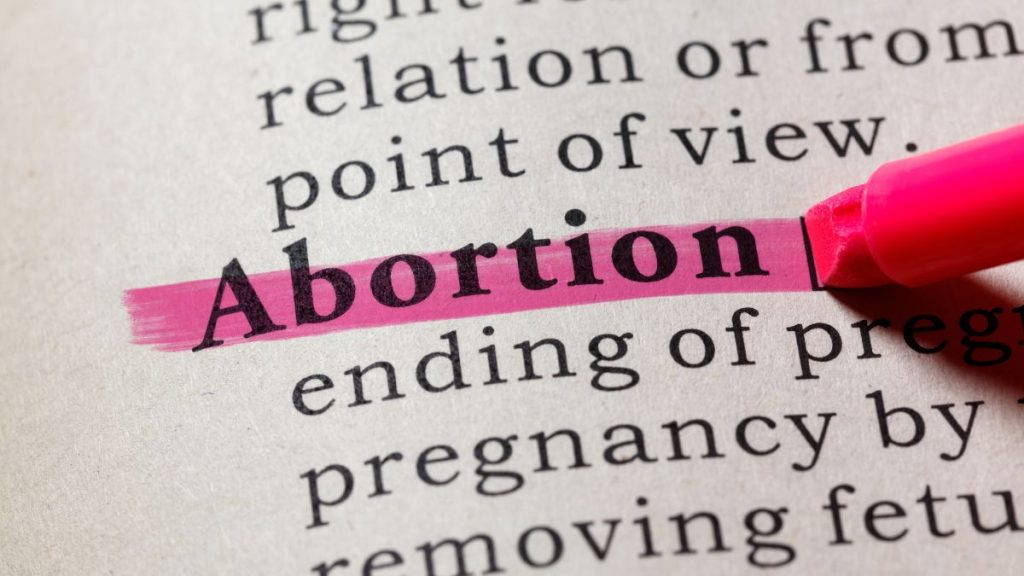The Florida Supreme Court has decided to permit a deceptive abortion amendment to be included on the November ballot. The amendment calls for allowing unrestricted abortion until birth to be written into the state's constitution.
Last year, Attorney General Ashley Moody requested the state court to consider the amendment supported by organizations like the ACLU and Planned Parenthood, who advocate for abortion rights. The amendment, titled “Limit Government Interference with Abortion,” states that no law should forbid, penalize, delay, or restrict abortion before viability or when necessary for the patient's health, as determined by their healthcare provider. The ballot summary claims that the amendment does not change the Legislature's constitutional authority to require parental notification before a minor has an abortion..
However, Moody cautioned that the vague references to viability, as well as the undefined use of the terms “health” and “healthcare provider,” could easily mislead voters who overwhelmingly oppose the legalization of late-term abortion.
Moody, however, warned the amendment’s vague reference to viability and undefined use of the terms “health” and “healthcare provider” could easily deceive voters who overwhelmingly oppose the legalization of killing unborn babies throughout all nine months of gestation.
“The ballot summary here is part of a … design to lay ticking time bombs that will enable abortion proponents later to argue that the amendment has a much broader meaning than voters would ever have thought,” Moody wrote in her brief.
Several local and national pro-life groups — including Susan B. Anthony Pro-Life America, the National Center for Life and Liberty, Florida Voters Against Extremism, and the Florida Conference of Catholic Bishops — filed support briefs expressing similar concerns.
“The ballot language incorrectly implies that the amendment will not impact parental rights when their children seek abortions. Currently, Florida requires parental consent, with limited
exceptions, before a physician can perform an abortion on a minor,” SBA Pro-Life America wrote in its brief. “If the proposed amendment passes, this statute will likely be another casualty. The loss of parental consent is obscured in the ballot language, which highlights that the proposed amendment will not change the constitutional right to parental notification—leading voters to assume that the right to parental consent will be similarly untouched.”
In a 4 to 3 ruling split by sex, the Florida Supreme Court’s male justices ignored concerns about abortion activists’ deceptive practices, including submitting fraudulent signatures to reject Moody’s request.
Thanks to the court’s rubber stamp, a proposed amendment littered with confusing language threatens not only Floridians’ parental rights but also the state’s ability to regulate abortion will go before voters in seven months.
In her dissent, Justice Meredith Sasso, joined by Justices Jamie Grosshans and Renatha Francis, criticized the proposed amendment as “vague and ambiguous” and said sponsors failed to “‘explain’ the material legal effects of the proposed ballot amendment” per state law.
“Instead, the Sponsor has punted, leaving the legal effect to be revealed by the eye of the beholder. The Sponsor’s statutory obligation, as explained by this Court’s precedent, demands more,” she wrote.
Sasso is correct. Using vague terms like “viability” can easily be used to make sure the personal judgment of a doctor becomes the final decision. If the suggested change is approved in November, medical professionals in Florida could consider abortion necessary for a woman’s “health,” whether it’s physical, emotional, or something else, at any point during pregnancy.
[RELATED: Abortion Extremists Will Extend Their Plans From Ohio To Your State. Here’s How To Be Prepared]
The state Supreme Court’s actions this week weren’t a total defeat. Justices also made a decision allowing Florida’s 15-week abortion limit, which a strong majority of Americans approve of, to stand.
A law banning abortion after a heartbeat is detected, which was approved last year, is expected to extend that limit to six weeks gestation on May 1. However, that law will become meaningless if the suggested change is approved in November.
“We must oppose Prop 4. Not only will this measure bring dangerous late-term abortions back to Florida, but it will allow underage girls to get an abortion without parental consent,” SBA Pro-Life America’s State Policy Director Katie Daniel said in a statement. “Those girls and the women who get abortions will be put at risk when this measure gets rid of every abortion health regulation in place. In a state where 25% of abortion centers failed inspections it’s no surprise they want to be completely unregulated to increase their profits at the expense of women, girls, and infants.”



